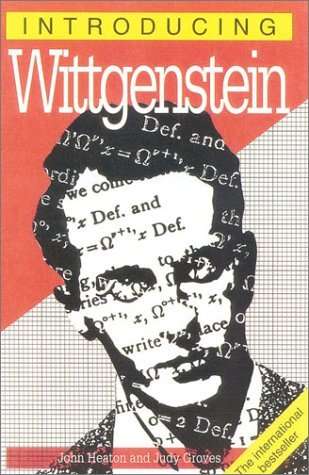
Introducing Wittgenstein
Check my rate
| Main centres: | 1-3 business days |
| Regional areas: | 3-4 business days |
| Remote areas: | 3-5 business days |

| Main centres: | 1-3 business days |
| Regional areas: | 3-4 business days |
| Remote areas: | 3-5 business days |
Published by Icon,Totem Books, 2001, softcover, 176 pages, illustrated, condition: new.
Wittgenstein began his education and career path as an engineer, with a penchant for mathematics. His love of solving problems led him ultimately into philosophy. Many big philosophers back in the day were wealthy aristocrats, as large fortunes and prestige bring with them ample opportunities for educational advancement, recognition, and easy publication of their ideas. Bertrand Russell, Wittgensteins mentor, was a very good example of this. But although Wittgenstein was probably one of the more wealthy philosophers in the pool of contenders across the ages, he determined not to think from the comfort of his couch. His Tractatus Logico-Philosophicus (Latin for "Logical-Philosophical Treatise"), his first opus for which he was awarded a doctorate, was written while he was fighting on the front lines! His later work, Philosophical Investigations, was published posthumously from his lectures, and is quintessentially the heroic Wittgenstein to its core in that it unsparingly and unflinchingly debunked his own first work!
His non-corporeal teaching methods and views on academia were the most intriguing part of his life for me. His students described his style as discursive and spontaneous. He would wrestle with questions out-loud, and invite his students into working towards the answers with him right then and there. He wanted learning to be organic and hands-on as much as possible, which probably stemmed from his engineering background. He oathed the artifice and hubris of academic atmospheres, and believed that they often encouraged hypotheticals, tautologies, and specious reasoning which diverged widely from a real world with real problems. His style was the kind in which thought and language experiments (games) teased new solutions out of his mind and the minds of his students. He endeavored to work in concert with the brain, instead of bridling the minds full potential within the confines of formalities and structures designed to impress other people and build an institutions reputation. He preferred real learning in the face of paper degrees, professorial bluster, and servile gpa-performance.
One of the things I came across in this my second reading of the excerpts of Wittgensteins Tractatus and Philosophical Investigations is his defense of common parlance against academic definitions. He attacks again and again the dissection of life for the sake of science. Life is best known when it is lived, and language is best studied as it is spoken and used, although there is some limited value in specification and definition. However, Wittgenstein didnt believe vagueness was always our only option, just that it was often true to the world we find ourselves in. Responding to the very real need of discovering and formulating more precise definitions at times, Wittgenstein says that there are very workable family resemblances between words and ideas, long before an artificial definition is set up as a warden to prevent meaning from leaking out. Consider words like good. He says that there is no one common property which the word good refers to. But there are resemblances between the various meanings of the termlike family resemblances (Introducing Wittgenstein). These family resemblances are the foundation for any definition we might come up with, and its best we get comfortable with this notion, because its the way cognition operates fundamentally. We give examples of similarities and do not attempt to define them, as there are no sharp boundaries .
Wittgenstein, along with writers/thinkers like Jean-Paul Sartre, were the anti-academic, anti-elitist voices who challenged the high thinking and low living of many of their aristocratic contemporaries. He was unwieldy, but probably in a way that kept those around him honest and, well, caught. He was the peoples man in high places, and many will never know how successfully he may have grounded the intelligentsia from a tyrannical control of ideas which belong to the instinctual rabble as much as anyone. Who knows where fascist, top-down oppression and manipulation would occur next if not for representatives of the common man acting as saboteurs and inside men to disrupt the haughty detachment that often infects the privileged. Wittgenstein was a hero. When he wasnt teaching in remote villages in Austria. Or wielding hot pokers at visiting lecturers.